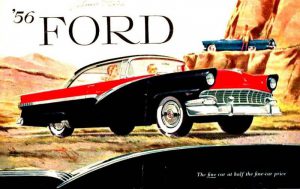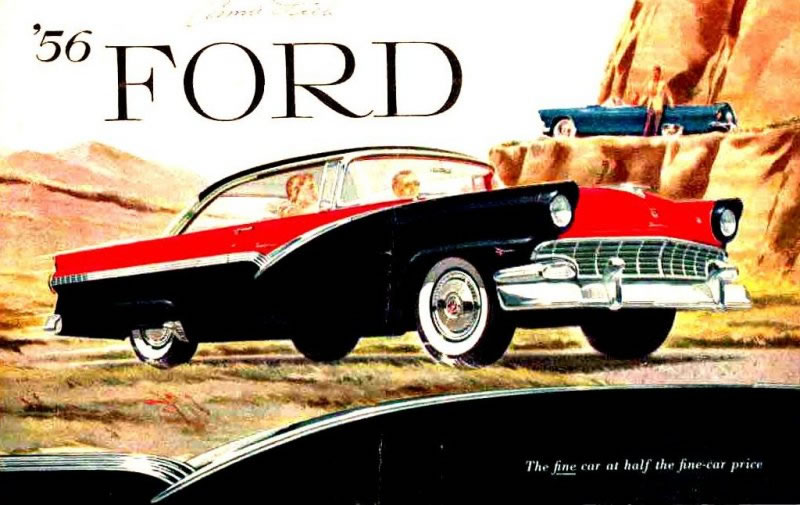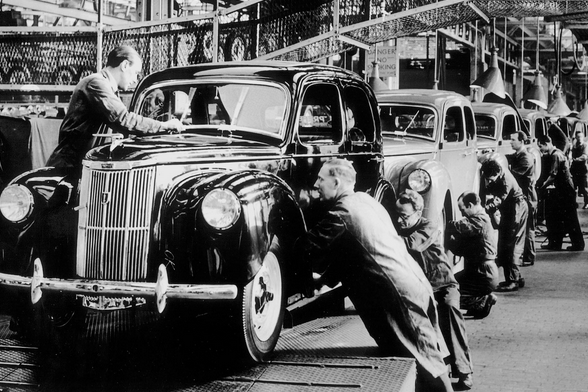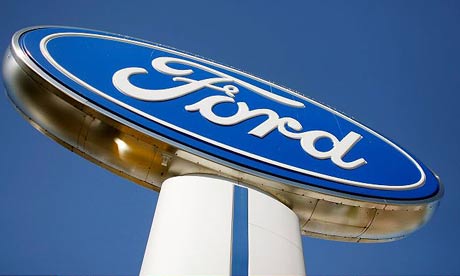 In 1956, Iacocca came up with an inventive new way to sell cars when he developed the “56 for ’56“. The policy meant that any customer that bought a new 1956 Ford should be able to do it with a 20 percent down payment, followed by monthly payments of $56 for three years. After the idea was applied across Ford, Iacocca was thought to be responsible for the sale of an additional 75,000 extra cars. Iacocca’s initiative meant that his profile was enlarged resulting in a big promotion to Dearborn, Michigan i.e. headoffice as the head of car marketing. Here, he met Robert McNamara who was one of the Whiz Kids brought in from the Air Force Statistical Strategy team by Henry Ford II to provide managerial talent at the top of Ford.
In 1956, Iacocca came up with an inventive new way to sell cars when he developed the “56 for ’56“. The policy meant that any customer that bought a new 1956 Ford should be able to do it with a 20 percent down payment, followed by monthly payments of $56 for three years. After the idea was applied across Ford, Iacocca was thought to be responsible for the sale of an additional 75,000 extra cars. Iacocca’s initiative meant that his profile was enlarged resulting in a big promotion to Dearborn, Michigan i.e. headoffice as the head of car marketing. Here, he met Robert McNamara who was one of the Whiz Kids brought in from the Air Force Statistical Strategy team by Henry Ford II to provide managerial talent at the top of Ford.
 When Lee worked at Chester, Pennsylvania as a desk Sales rep, he witnessed corruption when reps took bribes, gifts and favours from dealers in order to get a larger allocation of cars into various dealerships. He worked in sales for over a decade being patient with his colleagues. Fleet sales meant allocating new cars to dealerships, since Lee was in sales, and there was a backlog of cars, this gave him a lot of power at an early age. Others would play fast and loose with the truth to create larger bonuses for themselves. Iacocca did not.
When Lee worked at Chester, Pennsylvania as a desk Sales rep, he witnessed corruption when reps took bribes, gifts and favours from dealers in order to get a larger allocation of cars into various dealerships. He worked in sales for over a decade being patient with his colleagues. Fleet sales meant allocating new cars to dealerships, since Lee was in sales, and there was a backlog of cars, this gave him a lot of power at an early age. Others would play fast and loose with the truth to create larger bonuses for themselves. Iacocca did not.






























